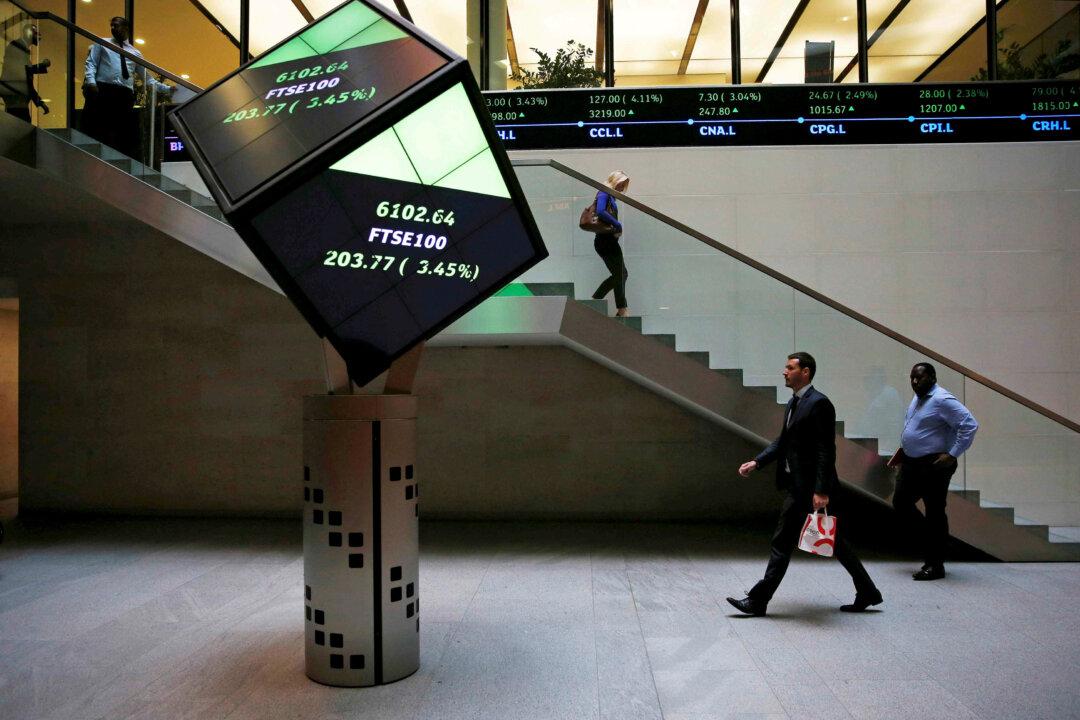LONDON—Global stocks steadied on Tuesday, underpinned by the conviction among investors that the Federal Reserve will not raise rates again, which kept the dollar at three-month lows and supported gold above $2,000 an ounce.
Traders will have to weigh up data this week on how the U.S. economy fared in the third quarter, along with a key read of consumer inflation and spending—both of which could be instrumental in setting expectations for the timing of the first rate cut.





